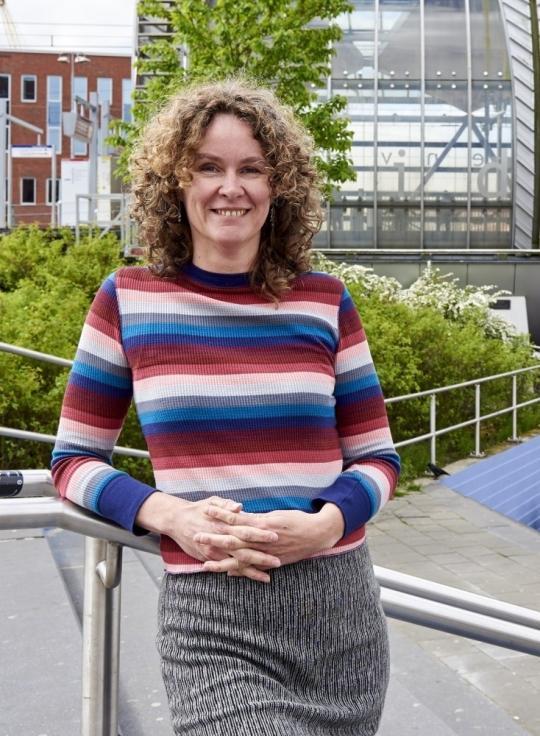Prof. dr. Marjolijn Das, endowed professor of Urban Statistics at the Leiden-Delft-Erasmus Centre voor BOLD Cities and the Erasmus School of Social and Behavioural Sciences will give her inaugural lecture 'What is the city but the people' Friday 14 september > more information.
Professor at CBS investigating impact of urban life
What are the effects of living in close proximity to one’s family in a big city? How do women fare who trade rural for urban life? These and other questions are the research focus of Professor Marjolijn Das at Statistics Netherlands (CBS). She was installed as Urban Statistics professor by special appointment in April 2017 at the Leiden-Delft-Erasmus Centre for BOLD Cities under Rotterdam Erasmus University (EUR).
Urbanisation
'More and more people are living in cities,' Das explains. 'Policymakers want to know how they fare and which groups are vulnerable.' The Centre for BOLD Cities uses Big, Open and Linked Data (‘BOLD’) to do research on urban areas and urban problems. 'CBS has many large datasets available and a great deal of relevant expertise.' Das is using CBS data sources to better map the life courses and family networks of urban residents.
Social networks
Das' research is focused on social networks in the city, particularly family networks. 'Such networks can be mapped out well using CBS’ System of Social statistical Datasets (SSD). We know from national and international research – based on the Netherlands Kinship Panel Study, for instance – that family members support and help each other. But as a result of urbanisation, families live farther apart than in the past. The question is therefore: are urban residents more vulnerable once they need informal care? Such information can be useful to Dutch municipalities as, under the Social Support Act (WMO), they are now responsible for providing care to residents who have become less self-reliant. In addition, we want to find out whether the proximity of relatives has a positive influence on such people. For example, do children benefit from having their grandparents living closeby?’

